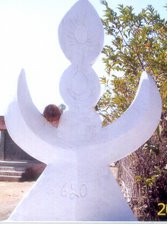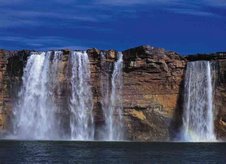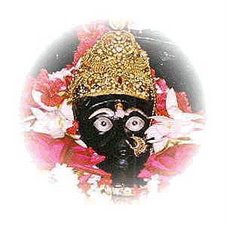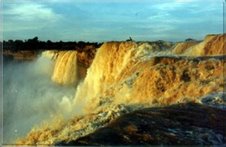NHRC LEAK CASTS DOUBT ON IMPARTIALITY AND INDEPENDENCE OF INVESTIGATION
On 15 April 2008, the Supreme Court asked the NHRC to
investigate human rights violations by the Salwa Judum and make available its
report within two months. The NHRC filed its report on August 26th
in a sealed envelope to the Court. NHRC officials have consistently told the
petitioners that they would not divulge any details of the report and the
report could only be obtained from the Court. We have not yet seen the report.
However, on the morning of August 26th, Economic
Times published a report by the reporter Devesh Kumar headlined, NHRC
gives thumbs-up to Salwa Judum movement. This
was subsequently reproduced in the Chhattisgarh newspapers. According to Kumar,
to whom I spoke on the phone this morning, he definitely did not get the
report from the NHRC but somewhere else. This can only be from one of the
respondents, either the Government of India or the Government of Chhattisgarh.
The leaking of the report to Economic Times clearly
amounts to contempt of court. More disturbingly, the fact that the report was
most likely leaked by the respondents -
who should not have been in possession of a copy - casts into doubt the impartiality
and independence of the NHRC.
This, perhaps even more than the report itself, is a great
tragedy for the country, since it shows that the separation of powers and
independence that our constitution enshrines is not working.
I am enclosing a letter written to NHRC on May 30,
expressing the petitioners apprehensions about the NHRCs investigation
process, in which the Chhattisgarh police and administration were fully involved. If the ET report is to be believed, our concerns were fully justified.
Nandini Sundar
(on behalf of the
petitioners)
30 May 2008
Justice Rajendra Babu
Chairperson
National Human Rights
Commission
Copernicus Marg
New Delhi
Dear Justice Rajendra Babu
We are writing to express our concern at the procedures
adopted by the NHRC investigation team in the matter of WP (Civil) 250 of 2007 and WP (Cr) 119 of 2007. The credibility of the NHRC is under threat, which is a matter of serious concern since the only defence of the rule of law against extremism is independent impartial institutions.
As petitioners, on the basis of whose application the
enquiry was constituted, we are grieved that we have not been allowed adequate opportunity to represent our side of the case.
On the other hand, the police and administration in Chhattisgarh have
been given every opportunity to influence the investigation.
The presence of Salwa Judum leaders, Special Police
Officers (SPOs) and the SP of Dantewada in the armed convoy of the NHRC investigating officers, completely vitiates the possibility of an independent and impartial enquiry. As the photos taken by independent journalists who happened to be on the spot at village Polampalli show, the presence of unidentified photographers during a hearing, as well as the ubiquitous presence of the SPOs and police, serves to intimidate witnesses. In another case,village Chintalnar, the villagers have actually been threatened for deposing
before the NHRC. We fear for the safety of the others, and do not wish the NHRC investigation to turn into a source of further harassment of villagers who have already lost everything, including their loved ones. We might also mention here, that the offer by the petitioners and local NGOs to accompany the NHRC team to ensure impartiality and create an atmosphere conducive for villagers to talk, was refused.
Given that the situation is one of conflict between
Naxalites and police, with villagers caught in the middle, it is understandable that senior police officers will have security concerns in visiting the villages. Therefore, it would have been all the more advisable that a team which is perceived as neutral should have been sent. The arrival of a convoy of ten four-wheeled drives and an anti-mine tank, along with road clearing exercises which preceded the visit, is hardly calculated to instill confidence
in villagers, who are used to running away at the sight of the Salwa Judum and police at whose hands they have suffered severe trauma. The police is an implicated party in the issue (many testimonies before the Court as well as those given to the NCPCR testify to the police/paramilitary involvement in arson, rape and killings).
It may be mentioned here that the NDTV team which visited
Jagargunda camp shortly before the NHRC team, had absolutely no security problem going. They went alone without any police protection. We would also like to point out that the NHRC team which went to Andhra Pradesh got so many testimonies because they moved around freely without such overwhelming police presence.
We are further concerned at the short notice that we were
given to present our views. Despite repeated requests to be informed well in advance, I was told on the 19th morning that anyone who wished to depose could do so at Sukma on the 20th and at Cherla on the 21st. In turn I had to pass this information on to people in Dantewada. Since villages are far flung, and communications are poor,
it takes time to gather people. Naturally, people were unable to come to Sukma within the required time, denying them the opportunity of justice.
We are also concerned at the lack of effort to ensure
impartial translation, despite our repeated requests on this issue. In the hearing at Sukma, two women whose husbands were killed by SPOs in Matwada camp,said the translator was from Dantewada. He is most likely to have been a policeman, SPO or Salwa Judum person, since the NHRC team was working through the administration. Elsewhere in the base camps, the NHRC team relied on Hindi speakers in the camps to translate. This has inevitably affected the authenticity of what they heard.
In short, the NHRC investigation in Chhattisgarh has been
marred by an over reliance on the administration, involvement of SPOs and Salwa Judum leaders who are the very people whose activities were to be investigated, heavy presence of security forces, limited involvement of the petitioners, and no time given to villagers to represent their grievances before the investigating team. The situation in Andhra Pradesh, however, as we had predicted, was more conducive to villagers, though even there advance notice
was limited, and many people who would have liked to depose could not do so.
We request that the NHRC send a fresh enquiry committee of
members themselves or eminent and neutral persons to Chhattisgarh, which will hold public hearings (which are notified to us well in advance) in both Chhattisgarh and Andhra Pradesh.
We also reiterate our request that women, who understand
women in situations of conflict, be part of this team, along with people who are competent to investigate other aspects of the situation like the health and food security conditions in villages and camps.
Yours sincerely
Nandini Sundar
(on behalf of the
petitioners)
Subscribe to:
Post Comments (Atom)







No comments:
Post a Comment